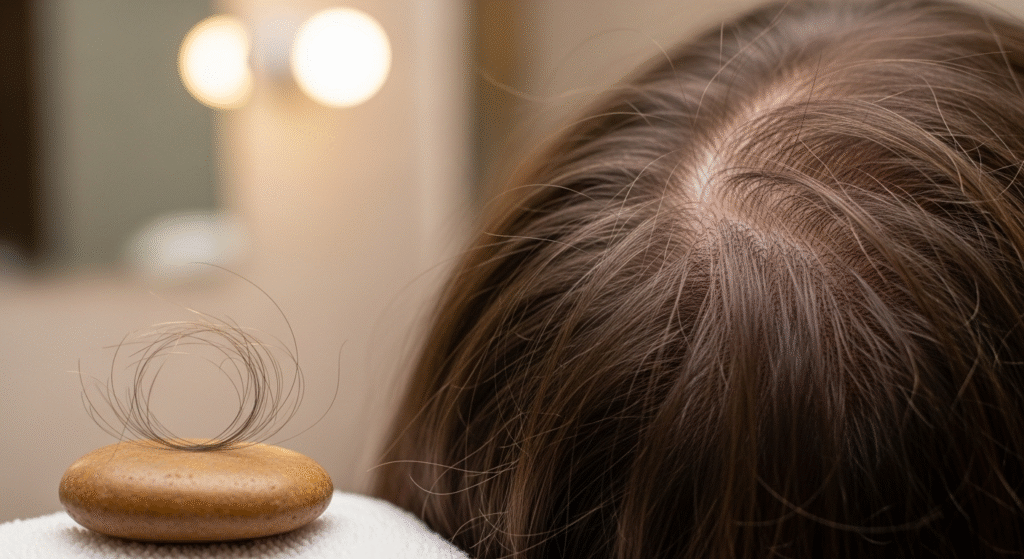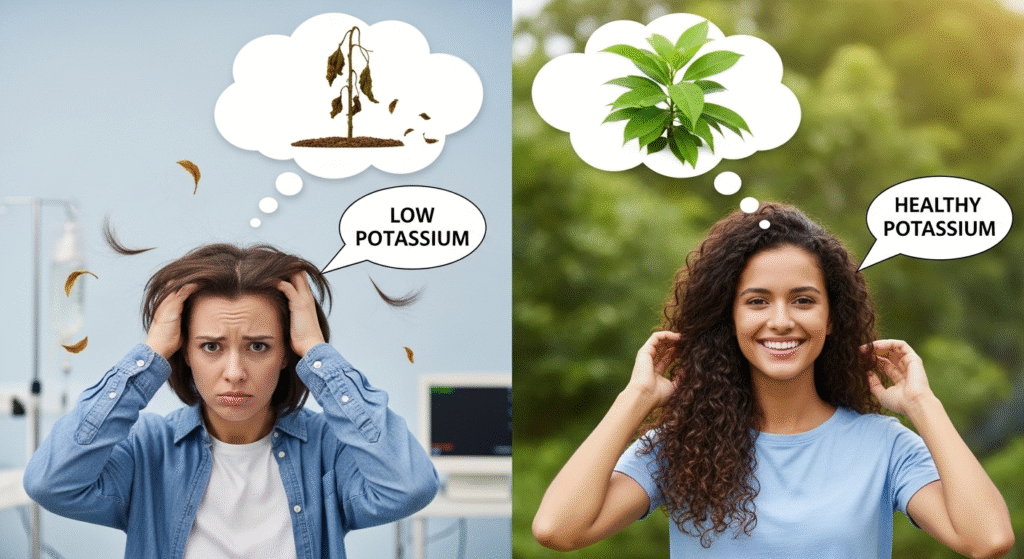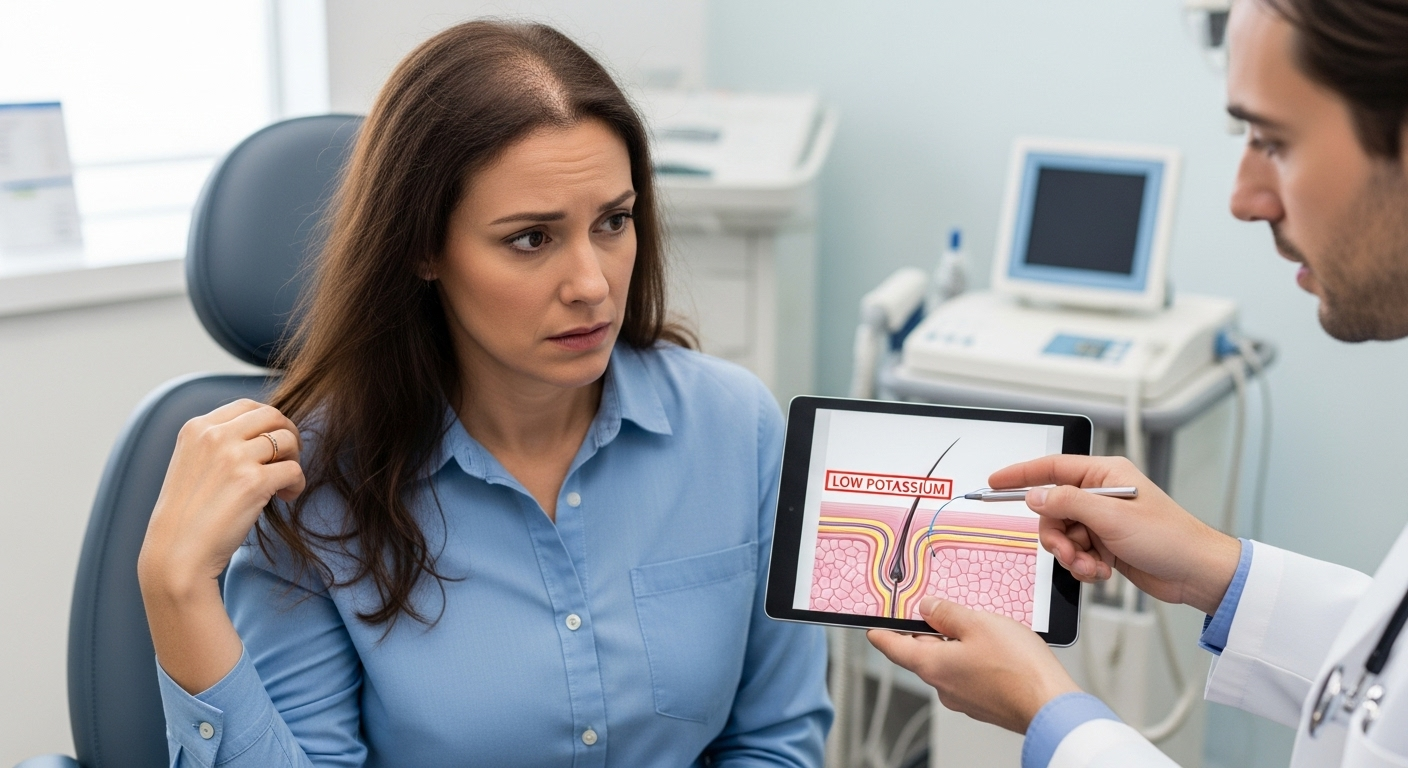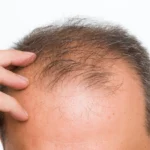Are you struggling with sudden hair thinning or unexplained shedding? One often-overlooked factor is low potassium and hair loss, a condition that silently impacts your overall health. Potassium isn’t just vital for heart and muscle function—it also nourishes hair follicles, supporting growth and strength. In this article, you’ll learn why potassium matters for your hair, …
Are you struggling with sudden hair thinning or unexplained shedding? One often-overlooked factor is low potassium and hair loss, a condition that silently impacts your overall health. Potassium isn’t just vital for heart and muscle function—it also nourishes hair follicles, supporting growth and strength.
In this article, you’ll learn why potassium matters for your hair, how deficiency leads to hair loss, and practical steps to restore balance with expert-backed solutions.

Understanding Potassium: Why It Matters for Hair Health
Potassium is an essential electrolyte that regulates fluid balance, nerve signaling, and cell nutrition. For hair health, it plays three crucial roles:
- Cellular Nourishment: Potassium transports nutrients to hair follicle cells.
- pH Balance: Prevents excessive scalp dryness and flaking.
- Circulation Support: Ensures proper blood flow to follicles for growth.
When potassium levels drop (a condition known as hypokalemia), hair follicles become weak, fragile, and prone to shedding.
Low Potassium and Hair Loss?
Yes — though it’s not the first cause people think of, chronic potassium deficiency can trigger hair thinning. Here’s how:
- Disrupted Follicle Function: Lack of potassium limits nutrient absorption in follicle cells.
- Scalp Health Problems: Imbalanced electrolytes affect oil production, leading to brittle strands.
- Stress Hormone Response: Deficiency increases cortisol, indirectly worsening hair loss.
Signs of Low Potassium Deficiency (Beyond Hair Loss)
If you’re losing hair due to potassium deficiency, you’ll likely notice other symptoms too:
- Muscle weakness or cramping
- Fatigue and low energy
- Irregular heartbeat (arrhythmia)
- Constipation or digestive problems
- Tingling or numbness
Pro Tip: If hair loss comes with two or more of these symptoms, consult a doctor for a blood potassium test.
How Much Potassium Do You Really Need?
The recommended daily potassium intake varies by age and gender:
- Adults: 2,600–3,400 mg per day
- Pregnant women: 2,900 mg
- Athletes or high-sweating individuals: Higher needs due to loss through sweat
A deficiency doesn’t happen overnight—it develops over time due to poor diet, excessive sweating, diuretics, or medical conditions like kidney disease.
Potassium-Rich Foods for Stronger Hair
Instead of jumping straight to supplements, start with whole foods. Some of the best potassium-rich foods for hair health include:
- Bananas (422 mg per medium fruit)
- Sweet potatoes
- Spinach & kale
- Lentils and beans
- Avocados
- Coconut water
Pro Tip: Pair potassium foods with magnesium and vitamin D for maximum absorption.
When to Consider Potassium Supplements
Supplements may be recommended if diet alone can’t fix deficiency, but only under medical supervision. Too much potassium (hyperkalemia) can be dangerous.
Experts recommend supplements mainly for:
- Chronic diuretic users
- People with digestive absorption issues
- Athletes with high sweat loss
Hair Loss Recovery Timeline: What to Expect

If potassium deficiency is the cause, correcting it can help hair regrow naturally. Recovery usually follows this timeline:
- Weeks 1–4: Energy improves, hair shedding slows.
- Months 2–3: Stronger, shinier new hair strands appear.
- Months 6+: Noticeable improvement in density and thickness.
Expert Tips to Prevent Low Potassium Hair Loss
- Eat a potassium-rich diet consistently.
- Limit processed foods high in sodium (they deplete potassium).
- Stay hydrated to support nutrient absorption.
- Manage stress, as cortisol imbalance worsens deficiency effects.
- Schedule regular health check-ups for electrolyte monitoring.
FAQs
1. Can low potassium cause permanent hair loss?
No, in most cases, correcting potassium levels restores natural growth unless other conditions (like genetics) are involved.
2. Is hair thinning the first sign of potassium deficiency?
Not always—muscle weakness or fatigue often appear earlier.
3. Should I take potassium pills for hair loss?
Only after consulting a doctor. Over-supplementation can harm kidney and heart health.
4. How long does it take to regrow hair after fixing potassium levels?
Typically 3–6 months, depending on severity and overall health.
Conclusion
Low potassium may not be the most obvious cause of hair loss, but its role is critical. By recognizing deficiency symptoms, adjusting your diet, and seeking medical guidance, you can restore healthy, vibrant hair.
Want personalized advice? Book a consultation with Dr. Uzma Irfan, an ISHRS-certified surgeon in Islamabad today and take the first step toward preventing nutrient-related hair loss.






